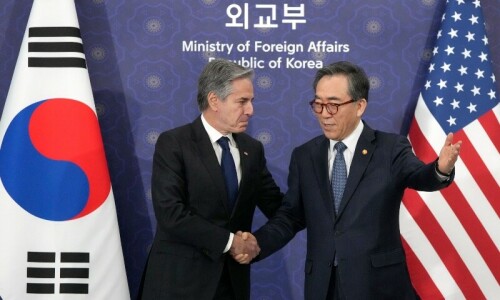
Every human is 99.5 percent genetically identical to any other human. It is that 0.5 percent that makes each person distinctive and unique, which, for a non-scientist like me, is a truly mystifying fact. From our fingerprints to our personalities, no two humans are identical, not even identical twins.
Yet we also have collective identities such as humankind, tribe, family, social class and profession. This duality between the individual and the group is something we all easily adopt. We have learnt to separate our public and private lives.
However, at some point or points in our lives we face a conflict between our individual desires and the social norms we agree to adopt. This conflict, when it becomes public, may lead to social ostracising, imprisonment, in some extreme cases, even persecution.
The only time when individualism is not only accepted but required is in the arts. Artists, musicians, poets and writers and all the creative arts are assumed to be unique and individualistic. The wonder and surprise of the arts is that while they are clearly personal expressions they seem to resonate with our own experiences and emotions.
Society has not always been ready for the more challenging expressions of individuality such as the Impressionists, Cubism or Robert Mapplethorpe’s photography, but given time, the rigid boundaries melt away.
Oscar Wilde, who paid a heavy price for exercising his individuality, wrote: “Art is individualism, and individualism is a disturbing and disintegrating force. There lies its immense value. For what it seeks is to disturb monotony of type, slavery of custom, tyranny of habit and the reduction of man to the level of a machine.”
The vast majority of individualists including those in creative fields internalise collective values – their actions and creative output will willingly not cross lines that would go too far against collective values. In Pakistan, nude paintings are avoided; there is no kissing in television or cinema.
Especially in the post-Zia years, we have developed a duality between our publically expressed selves and our private views — sometimes overwhelmed by the conflict, sometimes mastering the art of concealment. An example is the nature of religion which holds the individual accountable, yet it also enacted as a collective responsibility. Societies, whether theocracies or democracies, intend to make the public sphere an expansion of the private self or vice versa to minimise the conflict, however, the world has moved beyond monolithic societies which must now make room for multiple lifestyles.
Professor Geert Hofstede developed a system for IBM, to measure how values in the workplace are influenced by culture. He has shown that the UK, the US and the Netherlands are consistently among the most individualist countries, while Pakistan, Nigeria and Peru are among the most collectivist.
Five markers are used in the Hofstede test: power distance, individualism, masculinity, long-term orientation and indulgence. Measured out of 100, Pakistan scores 55 in power distance, showing no clear position on perception of the unequal distribution of power. The country has a low score of 14 on valuing individualism over collective identity. We prefer the mutual benefits in belonging to groups, whether it be committee banking systems, or religious sects or tribe, baradari and family. “The society fosters strong relationships where everyone takes responsibility for fellow members of their group. In collectivist societies offence leads to shame and loss of face, employer/employee relationships are perceived in moral terms (like a family link), hiring and promotion decisions take account of the employees’ in-group, management is the management of groups.”
Pakistan score in masculinity is 50, balanced between being driven by personal ambition, and being a caring society seeking quality of life — “wanting to be the best (masculine) or liking what you do (feminine).”
Pakistan scores a high 70 on uncertainty avoidance — that is, uncomfortable with uncertainty, Pakistanis prefer “rigid codes of belief and behaviour and are intolerant of unorthodox behaviour and ideas.”
The long-term Orientation is also 50, suggesting Pakistanis remain balanced between honouring tradition and the desire for change.
The most surprising observation is in the last category of indulgence in which Pakistan scores zero, where even Saudi Arabia scores 52. The opposite quality of indulgence is restrained. Being an extremely restrained society, Pakistanis have a tendency to “cynicism and pessimism”, make little time for leisure, and feel that enjoying themselves would be at odds with social norms.
While the Hofstede conclusions may have been arrived at by the study of diaspora Pakistanis, much of it seems recognisable and balanced in a way that allows change in either direction.
Pakistan seems to have certain advantages by maintaining collective social groups, especially when compared with the growing sense of personal isolation and alienation in some countries that are very individualistic. However, by the Hofstede interpretation, Pakistanis are held back from leading fulfilled lives by the fear of the unorthodox. One would like to believe that expanding the reach of the creative arts could go a long way in coaxing us out of our doubt, pessimism and fear of the unfamiliar.
Durriya Kazi is a Karachi-based artist and heads the department of visual studies at the University of Karachi
Published in Dawn, EOS, August 13th, 2017









































Dear visitor, the comments section is undergoing an overhaul and will return soon.